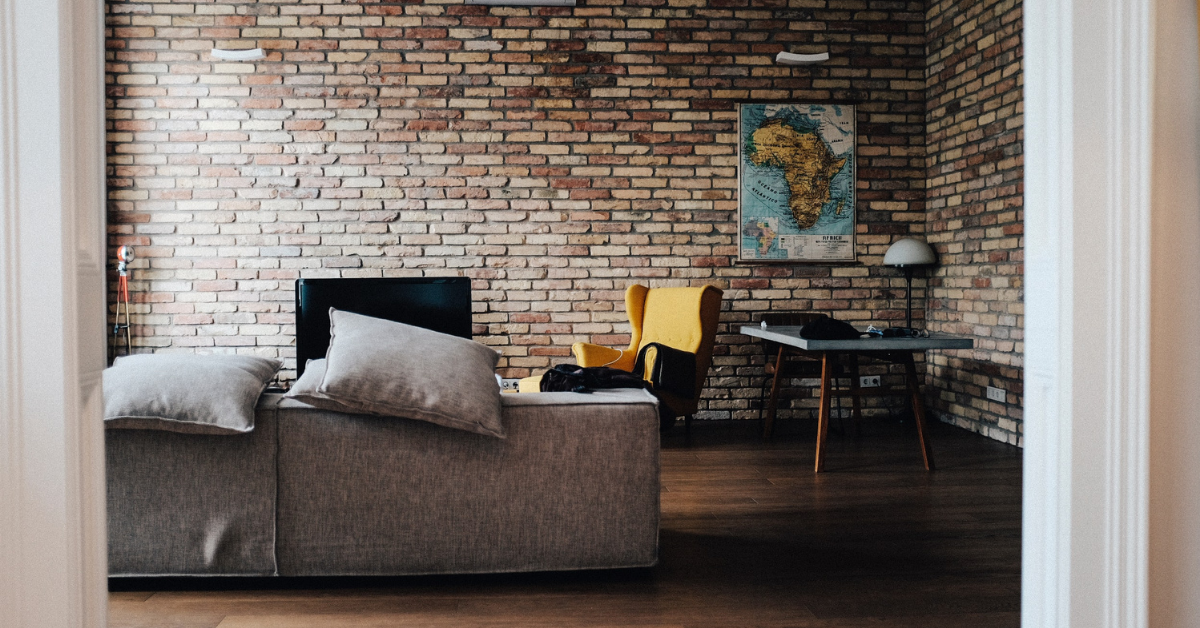Nomad Blog
Back to all posts
2021 Guide to Rental Rates: How Much Can I Rent My House for?
Published on: Dec 3, 2020
Prices matter, especially when it comes to real estate. Just think about how much time you spend at the grocery store debating between name brand and off-brand products—and that's just to save you a couple of cents.
When it comes to renting a property, pricing is one of the most important factors. You want to maximize your rental income, but you also don't want to alienate tenants or leave thousands of dollars of income on the table.
So, how much can you rent your house for?
Well, it depends. Where you live, the size of your property, the amenities you include, going rent, your target market, and so many other factors will impact how much you can rent your house or condo for.
Nailing your price can be challenging, especially when you’re renting your place for the first time. And, even when you do get it right, your rental market could change or new landlords could enter, meaning you'll have to adjust your rates again. Bummer.
If you're committed to going it alone, this guide will help! Below, we'll cover why it's so important to nail your pricing—then, we'll show you everything you need to know to dial your rates to perfection.
Why's It So Important to Charge the Right Rent?
Pricing can't just be an afterthought for your rental property. It doesn't matter if you have a pristine piece of property in an ideal location—if your pricing is a flop, you're going to miss out on revenue and top-notch tenants.
Here's why you need to get your pricing just right:
1. Reduce Vacancies
Price your rental too low, and you might attract the wrong tenants. Price your rental too high, and you risk costly vacancies. The sweet pricing spot is somewhere in the middle, and the closer you get to finding it, the closer you get to attracting ideal tenants on a recurring basis.
2. Cover Expenses
Unless you've already paid for your property in its entirety, most of your rental income is going to be going towards the mortgage. On top of that, you still need to pay for utilities, maintenance, repairs, marketing, and more. Your pricing needs to cover all these expenses so that you're making money, not losing money, month after month.
3. Maximize Profits
Even if you're pocketing cash from your rental property each month, that doesn't mean you're maximizing your profits. Tenants may be willing to pay even more cash to stay in your property, meaning you're missing out on revenue.
However, trying to squeeze the absolute most juice out of your rental price could ultimately lead to losses. For example, losing a month’s rent (let’s say, $1,200) because you were trying to earn a couple hundred more dollars could take half the year to recoup.
4. Create Accurate Expectations
Setting a rental price higher or lower than your fellow landlords isn't necessarily a bad thing, but it's going to create expectations for your tenants. A super low price may beg the question, "What's wrong with the place?" while a high price tag may start them thinking, "What more am I getting for the higher price?"
However, it’s important to note that pricing is not the only factor determining your rental’s success. Other components like marketing, property photos, screenings, showings, and more will need to be in top-notch order to earn tenants. Pricing is important, but it’s not the end-all-be-all of rental factors.
The Value of Your Rental Is What Tenants Are Willing to Pay

It doesn't matter what any calculator or pricing strategy tells you—your rental's value is what a tenant's willing to pay.
That number could be lower or higher than national or state averages, so don't let rental rates or calculators completely drive your pricing decisions. That means things like the 2% rule (which dictates monthly rent should be 1-2% of property's value) should be more of a guideline than a hard-and-fast rule.
You'll need to consider other impacting factors, like:
Competition: What are similar rental units going for in your geographic location?
Seasonal demand: Rental property demand peaks in the spring and summer and plateaus in the winter. That means you'll need to adjust your rates during these seasons to win tenants at the best price.
Economic impacts: It may be harder to find tenants during a global pandemic or recession.
Trends: If your rental is located in a blossoming part of town, its value could go up. Inversely, if your part of town is dying, your rental's value could go down.
Supply and demand: If there's a growing number of rental properties for tenants to choose from, the value of your rental will go down.
It's a lot of factors to think about, and they're ever-changing. You'll need to frequently revisit your pricing, especially if you're struggling to find tenants.
5 Tips to Find the Right Price for Your Rental Property

Now, it's time for the fun part: pricing your rental property. This is far from a one-and-done task—it's something you'll need to regularly adjust to accommodate changes in the market, economic impacts, and local demand.
1. Research Your Local Competition
Visit rental sites to see what other rentals are charging. Look at the size of their property, the location, and the amenities they offer so you can get closer to an apples-to-apples comparison.
Regularly check back to see if other similar properties are still vacant. If they are, they might have their pricing wrong, and you can price your rental appropriately.
2. Remember the Price-Value Relationship
The price that your tenants are willing to pay is determined by the value they believe they're receiving. Increase the value, and you'll increase the price.
For example, you may want to invest in new appliances, hardwood floors, or furniture to enhance the perceived value of the property. Or you may want to highlight the covered parking privileges or neighborhood safety statistics.
Look to see what other rentals are highlighting in their listings. They may be focusing on neighborhood characteristics, luxury amenities, commute times, or other features. See what you could be marketing, too, to increase your rental property's value.
3. Budget for Expected Expenses
When setting your price, don't forget your other expenses. Initially, you may be wanting to just set your price higher than your mortgage so you can decrease your vacancies and pocket a small amount of cash each week. Unfortunately, this strategy doesn't cover all of your other recurring expenses:
Utilities
Maintenance
Repairs
Taxes
Insurance
And more...
If you're self-managing the property, you also need to factor in the cost of your time. It can take hours to research your pricing and update your listings. Plus, you'll sometimes need to visit the property in-person for minor repairs, cleaning, and more.
This time adds up, and if you're not factoring it into your costs, then you could be spending a lot of time for not a lot of monthly income.
4. Focus on Profit, Not Prices
In the end, you're not just looking to set the highest rental price you can get away with. You don't want to maximize rent—you want to maximize profits.
A bad tenant at a higher price is almost never worth the few extra bucks. To maximize your profits, you're going to need to set prices that entice and retain tenants who'll pay on time (every time) and take care of your property.
Don't think so much about, "How much can I rent my house for?" Instead, focus on, "How much can I profit from my house?"
5. Regularly Reevaluate
Your rent price is never set in stone—it's going to need to fluctuate from time to time. Reevaluate your price at every lease expiration to see if the value has changed. You may have an opportunity to increase rent while maintaining top tenants—that's the ideal situation.
However, if you're experiencing any concerning vacancies, you may have to decrease your rent to bring in tenants. This isn't a preferable scenario, but it's sometimes necessary in order to mitigate losses.
What If You Need to Rent for More Than the Fair Market Value?

So, now you know some helpful tips for pricing your rental property. But what if your sweet spot price isn't high enough to cover your expenses or generate enough ROI (return on investment)? Well, you'll need to make some changes to increase your rental property's value so you can raise the price.
Remember, increasing your rental property's value isn't just about investing more money in the property. A new fridge or paint job will cost a pretty penny, but they might not necessarily increase the value of your property in the eyes of your tenants.
First, let's look at a few ways you can identify potential improvements.
Talk to your tenants: Ask your current or previous tenants what improvements they'd like to see in the property. Find out their pain points and see if they'd be willing to pay extra to have those pain points solved. For example, you may find that your tenant is willing to pay an extra $50 each month to enjoy a washer and dryer in the property.
Research other rentals: Look at other home listings to see what features or amenities they're highlighting. You may find renters in your area are more focused on having an outdoor patio rather than community pool access—this will give you insights into what aspects you should invest in to boost your property’s value.
Stay in your rental: Spend a night or weekend at your property and see what the experience is like. Are you happy with your stay? What do you wish was different? You're probably not the only one with these perceptions—make the necessary improvements to satisfy your expectations.
Now that you know what needs changing, it’s time to invest in your property. Don’t go overboard with a ton of investments at once. Especially if you have multiple properties, it’s best to make investments over time. This will protect your cash flow while also helping you discover which investments have the most impact on demand.
Price to Perfection
Pricing is hard, and it's something you're going to need to always be thinking about. Use these tips to nail your rental rates so you can maximize your profits (not rent) and boost your ROI to its utmost potential.
Pricing becoming too much of a headache? Don't worry—we can help.
Lease your property with Nomad and you'll never have to worry about how much you should charge for rent again. Once you sign your lease, you'll get paid every month, guaranteed. Plus, you'll have peace of mind knowing that we diligently screen all our tenants so only the best-of-the-best renters will be staying in your property. Additionally, we offer $500,000 of property protection.
You'll never have to worry about how much you can rent your house for again. Nomad is your partner. We maximize your rental profits and lower your vacancy risk. Request your guaranteed rent estimate now and see how much cash you could be making.

Reach New Heights
Get a no-obligation estimate for Guaranteed Rent, and see how Nomad can help you earn more with less stress


Unlocking economic opportunity for everyone.
Already a customer with us? Login to your portal

© 2025 Nomad Labs, Inc. All rights reserved.
Nomad Brokerage LLC
Nomad Brokerage California Inc
California DRE # 02230490
Consumer Protection NoticeTREC Consumer Protection Notice


